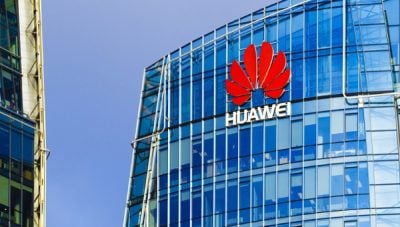China’s Huawei A.I. Chips Technology Signals Collapse of US Strategy. China’s Era of “Big AI”?

All Global Research articles can be read in 51 languages by activating the Translate Website button below the author’s name.
To receive Global Research’s Daily Newsletter (selected articles), click here.
Click the share button above to email/forward this article to your friends and colleagues. Follow us on Instagram and Twitter and subscribe to our Telegram Channel. Feel free to repost and share widely Global Research articles.
***
After their success with the Kirin 9000s smartphone chip, I expected Huawei to make AI chips using that same technology. And that is precisely what Huawei announces now.
And much more.
Huawei will not only make advanced AI chips in contravention of US tech sanctions, Huawei will also build big computers and run AI cloud data centers on a large scale.
Huawei announces that the era of big AI has also come for China. Huawei speaks of developing and implementing both software and hardware for LLM (Large Language Models), which is the main type of models for implementing AI.
Huawei already makes smartphones, 5G wireless telecom base stations, PCs, and operating systems, key tech fields in which operate big US tech companies like Apple, Microsoft, and INTEL.
Huawei now adds new big business fields including AI-chip design, fields which are the domain of other US tech giants NVIDIA and AMD.
By adding AI cloud computer centers, Huawei enters other large business fields in which operate Microsoft, Amazon, Oracle, and IBM. That is already an enormous palette covered by Huawei. But even more than that. Huawei announces that it will open a new business field where Huawei will work with companies to develop and run big AI models for their specific needs with their specific big data. Having a large toolbox of generally usable AI systems and adapting these to the needs of specific customers is precisely something which IBM is specializing in too.
All US tech sanctions against China are in shambles now.
And it is an extra kick in the face of the US that this complete Chinese contravention of all US tech sanctions is announced by Huawei, which is a hundred-times over sanctioned by the US, and through Meng Wanzhou, Huawei’s CFO who was illegally detained on fake US orders in Canada. See this.
It looks like US tech sanctions are crumbling faster than anybody (including myself) had expected.
Huawei is clearly designated by China as one if not the lead company to achieve China’s ambitious goals in AI and tech.
Instead of being quashed by sanctions like the US wanted to, Huawei has become much stronger by overcoming US sanctions.
Huawei is becoming an unprecedented global IT and tech giant in many ways bigger than IBM, INTEL, and Apple by combining all they do into one mega tech Corporation supported and spearheaded strategically by the Chinese government.
Welcome to Huawei-World.
The strategic consequences are enormous on a global scale. China is already the leading industrial and trade power in the World. China has the World’s biggest economy measured in Purchase Power Parity (PPP), far bigger than the USA.
China in recent years has also become the leading research power in the World, also surpassing the USA with a substantial margin. China also already has the biggest navy in the World. With a continued growth advantage over the USA of 3.5% in yearly GDP, China will overtake US GDP in a decade, by 2033.
And now, with the collapse of US tech sanctions, the US has no hope of keeping China from becoming the World’s leading power in everything – tech, economy, trade, industry, diplomacy, and military.
*
Note to readers: Please click the share button above. Follow us on Instagram and Twitter and subscribe to our Telegram Channel. Feel free to repost and share widely Global Research articles.
Karsten Riise is a Master of Science (Econ) from Copenhagen Business School and has a university degree in Spanish Culture and Languages from Copenhagen University. He is the former Senior Vice President Chief Financial Officer (CFO) of Mercedes-Benz in Denmark and Sweden.
He is a regular contributor to Global Research.
Featured image is from The Bullet

